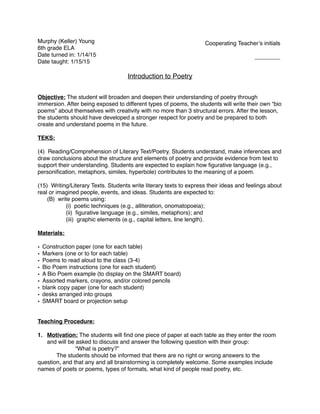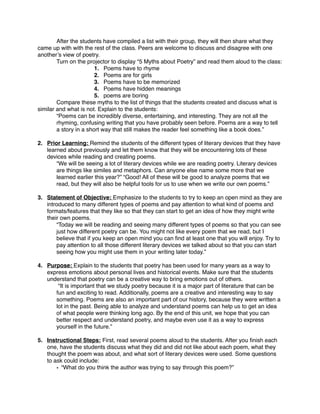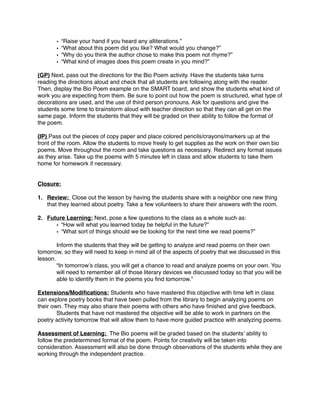This document provides the lesson plan for a 6th grade poetry unit. The objective is for students to broaden their understanding of poetry through exposure to different poem types and then writing their own "bio poems". Students will analyze poems, identifying literary devices. They will then create bio poems about themselves following a specific format. Assessment will be based on correctly applying the bio poem structure. The lesson involves defining poetry, discussing literary elements, reading sample poems, explaining the bio poem activity, and allowing time for creation and sharing.



